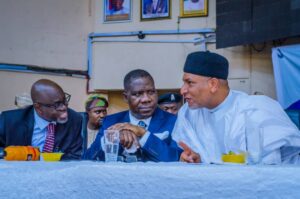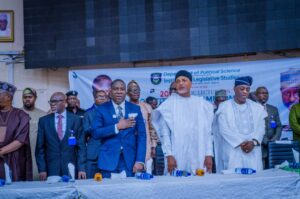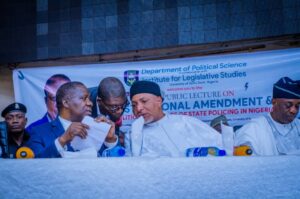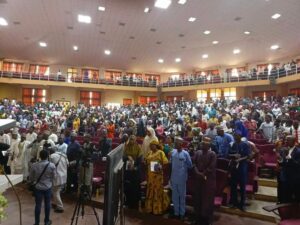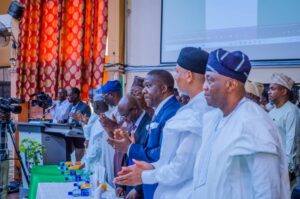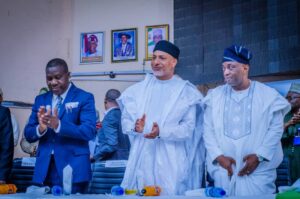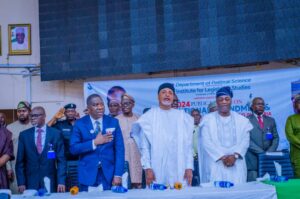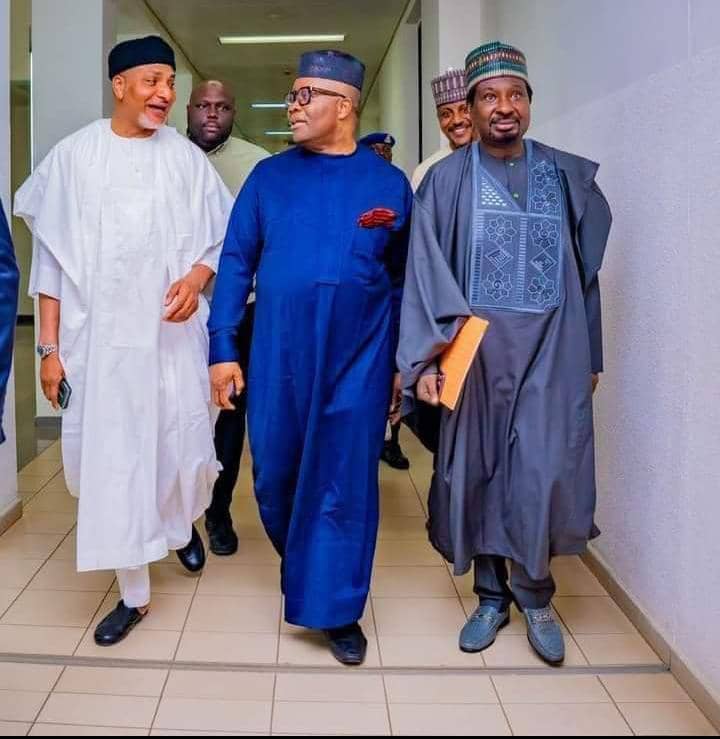…Describes Turaki of Ilorin as the most influential first term senator
By Nafiu Toyin Abdulqadri
The Leader of the 10th National Assembly, Dr. Michael Opeyemi Bamidele, has described Senator Saliu Mustapha, representing Kwara Central, as the most influential senator amongst the first term senators. According to him, the Turaki of Ilorin remains the most influential and respected first term senator in the 10th National Assembly, known for his selflessness and dedication to the well-being of his colleagues. He commands a lot of respect and is a voice for his colleagues, always looking out for their interests.
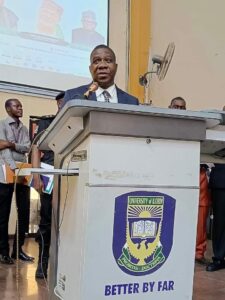
Senate Leader, 10th National Assembly
The Senate leader made this statement yesterday at the University of Ilorin during the 2024 public lecture on ‘Constitutional ammendment and the Political Dynamics of State Policing in Nigeria’. The lecture was organized by the Department of Political Science in collaboration with the Institute for Legislative Studies.
The senate leader observed that the 10th National Assembly has more first term senators than the ranking senators. Surprisingly, they were more organised and led by a selfless man like Senator Saliu Mustapha.
“73 of the Senators are new, meaning that the experienced Senators couldn’t determine who would become the Senate President. The new Senators held significant influence, and we were forced to negotiate with them. They formed a group led by Senator Saliu Mustapha, who was elected chairman.
We tried to explain that our rules don’t recognize such a position, but he wouldn’t budge. On the day of the election, we had to sit down and negotiate with him. He didn’t negotiate for himself, but for all the new senators. As a result, Senator Saliu Mustapha, a first-term Senator, was appointed chairman of the Agricultural Committee, which was his desired position. This led to the appointment of the three senators from Kwara State chairmen of committees, making it a total victory for the state.”
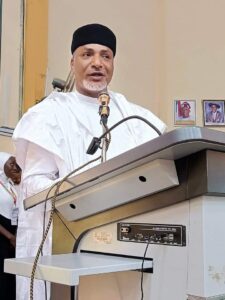
Chairman Senate Committee on Agriculture
Earlier in his lecture, the Senate Leader noted that the Nigeria Police face a multitude of challenges, emphasizing that the force’s organizational structure, management, governance, and funding play a crucial role in its ability to fulfill its constitutional obligation of safeguarding the lives and properties of Nigerian citizens.
More photos from the public lecture: